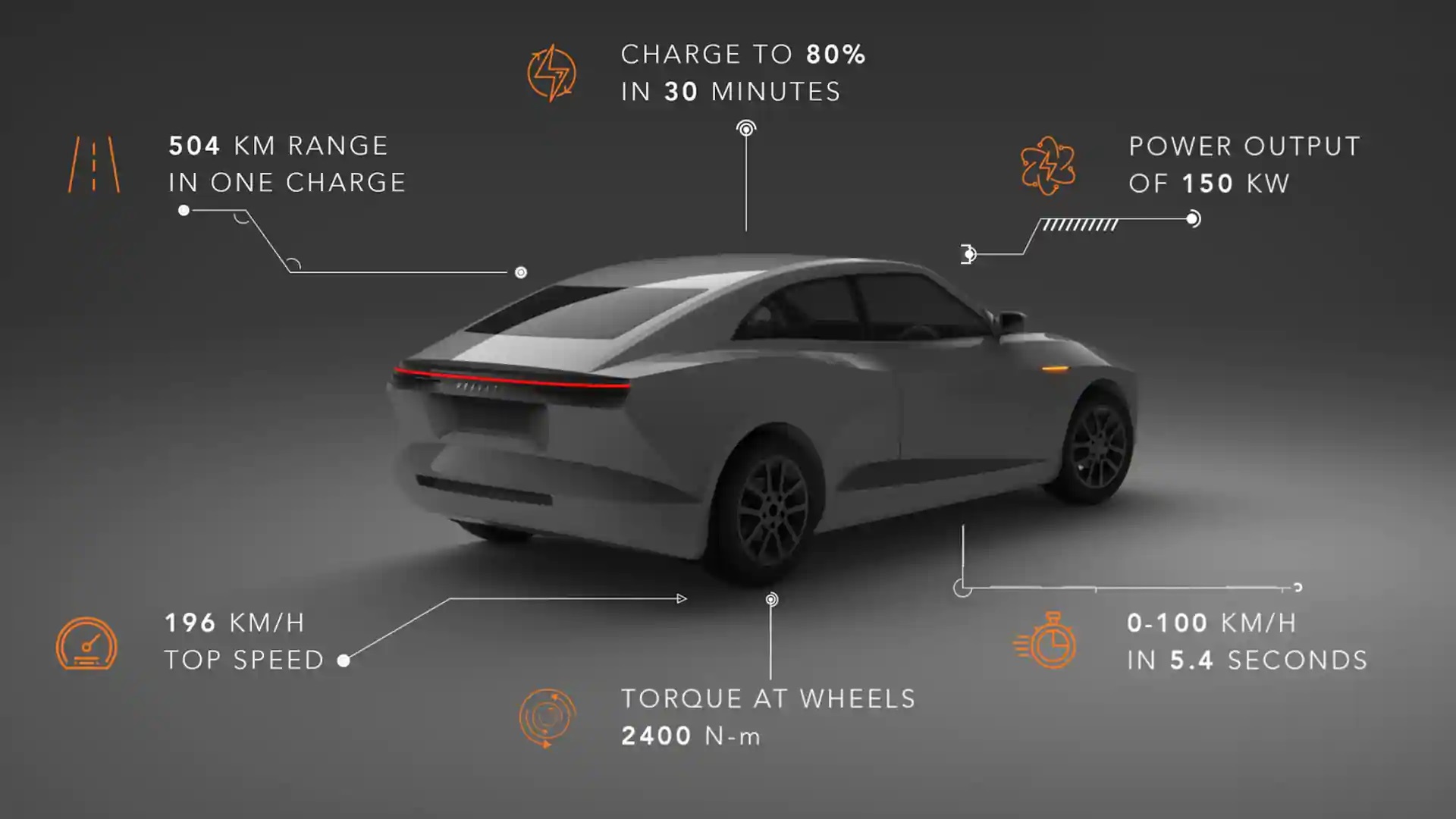Bengaluru-based Pravaig Dynamics has come up with its first homegrown electric vehicle that promises to step up electric vehicles in India. The EV startup officially revealed the Extinction MK1 premium electric car, entirely made in India, ahead of release sometime next year.
There are some tall claims that are set to raise eyebrows of some of the other electric vehicle manufacturers in the country, and also those abroad. Consider this: An electric car with a range of over 500 km on a single charge? Volkswagen ID.3 can barely do 500 km yet. Tesla Model 3 performance variant claims a range of 507 km in a single charge. In India, the EV with the highest range is the Hyundai Kona EV with a claimed range of 452 km. MG ZS EV, which has a range of 340 km, is still in the process to upgrade to a range of 500 km. Even the newly-released Mercedes EQC has a range of just 350 km.
And if one runs out of the charges, the company says Extinction MK1 can freshen to about 80 percent under 30 minutes.
The car gets power from its 96 kHw battery that can churn out 200 hp of maximum power and a top speed of 196 kmph. It can accelerate from zero to 100 kmph in just 5.4 seconds.
At the first look, the Extinction MK1 is bound to catch some attraction with its design that is a rarity on Indian roads. For some, the design may look the same as the Lucid Air EVs. The coupe-like, futuristic design along with LED bars on the front and the rear makes the car stand out in the public from other vehicles currently observed.
In the interior of the Extinction MK1, one would be greeted with a luxurious cabin looking like a lounge. There is enough space inside for passengers for stretching their legs and relax while enjoying the drive. The rear passengers will also get reclining seats for more comfort. However, the company did not provide any images of the interior yet.
The two-door, four-seater electric car will be mainly used for commercial fleets on a subscription-based model. Pravaig is intending to produce around 250 units of the Extinction MK1 annually. It will be initially sold in cities such as Bengaluru and Delhi before the EV startup adds more Indian cities on the list.

